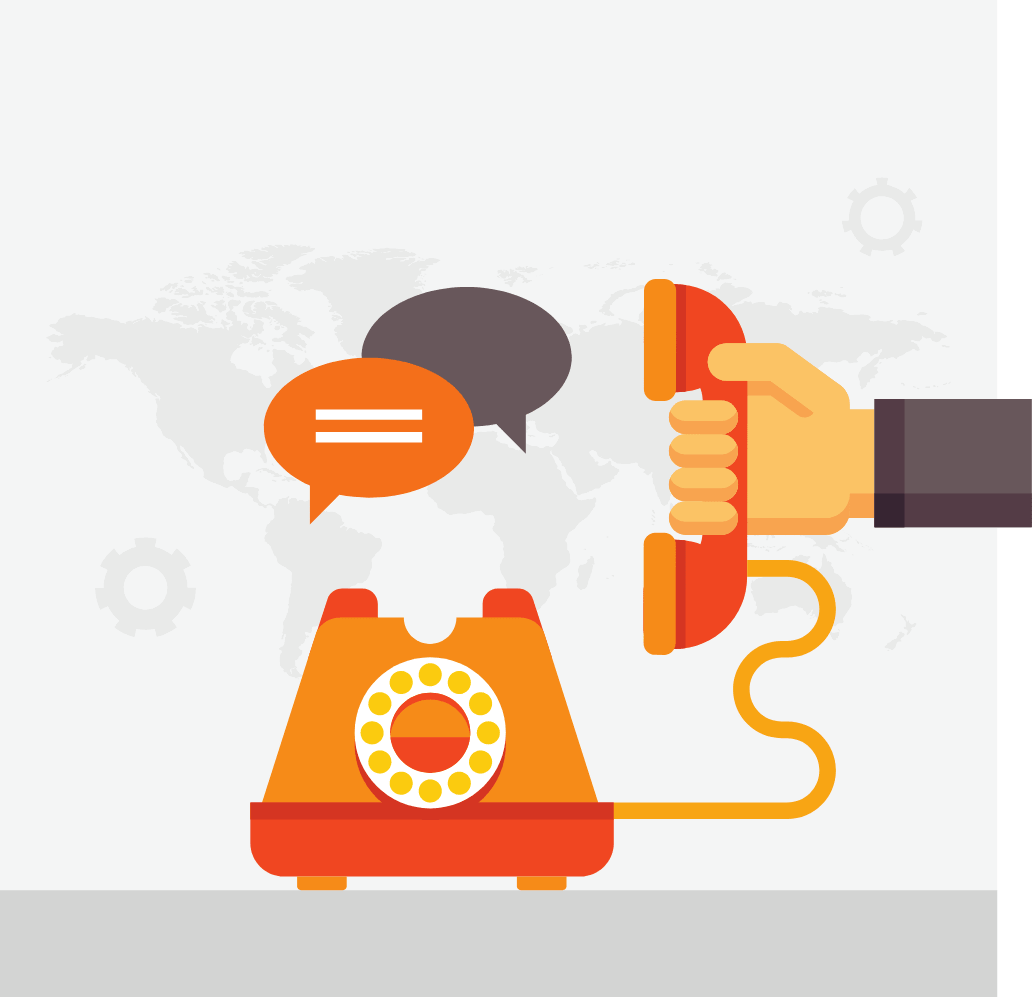The millennials are coming of age. With the youngest millennial turning 21, it’s only natural to assume that the workforce is slowly undergoing metamorphosis, with an enthusiastic younger generation lacing their boots to get to work. However, along with this enthusiasm comes a few wrinkles that need to be ironed out, the biggest wrinkle being the average millennial’s aversion to phone calls.
Telephone anxiety has been around for a while, but its presence is felt predominantly among millennials—a generation born when technology was witnessing a paradigm shift. The world went full-circle and returned to written communication, albeit evolved to become convenient and instant, so telephones taking the backseat in everyday usage. Millennials understandably feel anxious about effectively using a medium they don’t have much professional experience with.
While email, texting, and chat have their advantages, it comes with limitations that get magnified in customer service. Customers expect you to help them with their problems, and coming off as empathetic and understanding makes that go more smoothly. An interaction over the phone often trumps a text conversation, as emotions tend to get lost in text. Words can be taken out of context, the customer might seem irritated when they actually aren’t, and agents can come off as cold. For instance, “Hello, how can I help you?” is more effective over voice because you sense enthusiasm in someone’s tone as opposed to reading it indifferently in your head.
Phone anxiety is here to stay and will affect performance unless something is done about it.
For instance, consider the dilemma that this manager talks about in Support Driven, an active CX Community:

It’s a tricky situation for any manager to handle, and will only get more complicated without pre emptive action. Here are some tips you can use to get your agents to overcome their telephone phobia:
Plan how to commence and conclude conversation:
In the world of cinema, most directors go ahead with a script if the writer knows how it starts and how it ends. Once you know the starting and ending points, it is easy to navigate a challenging phone call. Sometimes, knowing how and when to end a call can be the most challenging part of a phone call.
Consider the worst case scenario… and laugh at it:
Picture the worst possible outcome in your head and play out the scenario. Work backwards from there, and plan to avoid the outcome. Then, choose the second-worst possible outcome, repeat the process, and so on. Thinking about the worst-case scenario works for you in two ways. Firstly, it helps you understand that a bad phone call isn’t the worst that could happen in the greater scheme of things and is not worth running away from. Secondly, and most importantly, it allows you to think of a contingency plan in case things get out of hand.
Practice in situations where the stakes are low:
Constant practice not only makes you better, but also helps build confidence. Start with the simple things, like calling a loved one or ordering takeout, where the consequences are trivial.
Ask questions:
If you’re dealing with a particularly difficult customer and the conversation is going nowhere, don’t panic. Instead, focus on asking questions that are both leading and subjective. The leading questions prompt the answers you need from your caller, and the subjective questions will elicit responses that will help you take the conversation forward.
What you do during a phone call also helps. Even small changes in your posture can help improve your confidence. When in conversation,
Smile: When you smile as you talk, you feel more relaxed. It also lowers your heart rate, allowing you to stay calm and defuse stressful situations.
Befriend the mirror: A vital part of good conversation depends on reading visual cues. One of the main reasons why people feel uncomfortable over a phone call is because they cannot see the other person reacting to the conversation. One way to work around this limitation would be to look at yourself in the mirror. It always helps to look at someone as you talk, as opposed to free space.
Gesticulate: Conversations are easier when they are natural, and gestures help with this. When you don’t gesticulate, you feel more constrained and feel your point is not getting across as convincingly as you want it to. The best thing about phone calls? They can’t see you. So feel free to go overboard and exaggerate your actions. This will boost your self-confidence and make your phone call a little more enjoyable.
Telephone phobia is real, and constantly working around it isn’t enough. Phone calls are still a relevant medium of communication in the workplace and avoiding them will only hold your agents back. With practice and diligence, phone calls can become a natural part of your everyday work life.

